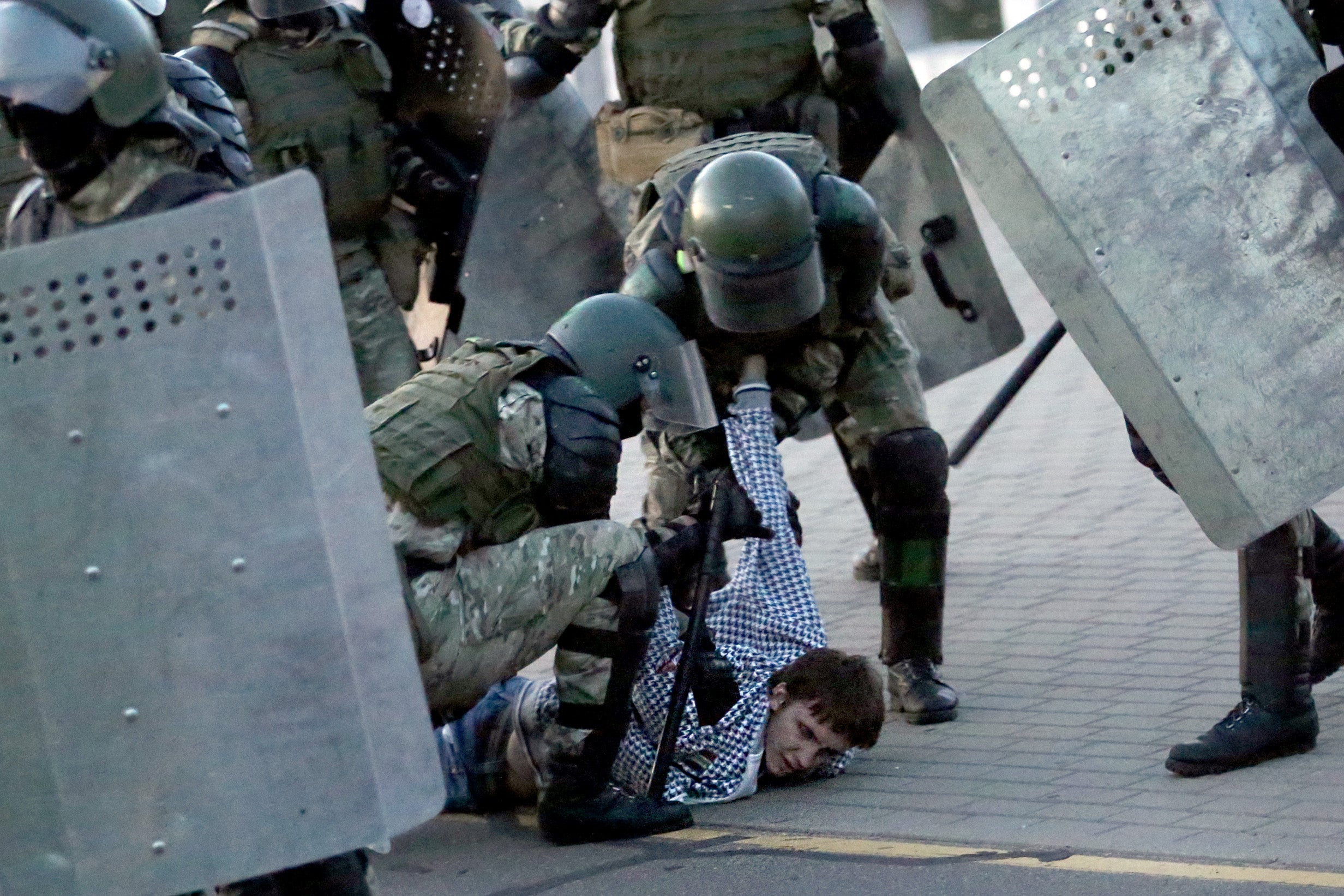UK makes first move in sanctions against Belarus
Dominic Raab says UK will ‘hold Lukashenko and his regime to account’

Your support helps us to tell the story
From reproductive rights to climate change to Big Tech, The Independent is on the ground when the story is developing. Whether it's investigating the financials of Elon Musk's pro-Trump PAC or producing our latest documentary, 'The A Word', which shines a light on the American women fighting for reproductive rights, we know how important it is to parse out the facts from the messaging.
At such a critical moment in US history, we need reporters on the ground. Your donation allows us to keep sending journalists to speak to both sides of the story.
The Independent is trusted by Americans across the entire political spectrum. And unlike many other quality news outlets, we choose not to lock Americans out of our reporting and analysis with paywalls. We believe quality journalism should be available to everyone, paid for by those who can afford it.
Your support makes all the difference.The United Kingdom has announced it will move alone in imposing sanctions against Belarusian officials — thus bypassing an EU deadlock caused by Cyprus’s refusal to sign off on new restrictions.
In a parliamentary statement on Thursday, British Foreign Minister Dominic Raab said he would now work with Canada and the United States to “urgently” prepare a sanctions regime against the country’s unrecognised ruler Alexander Lukashenko and his enablers.
“We will apply all the tools at our disposal to hold Lukashenko and his regime to account,” Mr Raab said.
The British move comes a day after Belarus’s discredited ruler inaugurated himself in a controversial ceremony in Minsk. Mr Lukashenko, who has ruled over Belarus with an iron fist for 26 years, claimed an improbable 80% landslide victory in presidential elections on August 9. The context of his inauguration — which happened in secret, surrounded with soldiers, and with much of the city locked down — suggested that not even he believed it.
On Wednesday evening, tens of thousands of demonstrators took to the streets in protest at the formalisation of the electoral deception. They were met with an especially neurotic response by Mr Lukashenko’s men, with government forces deploying water cannon in Minsk for the first time since August 11. Serious injuries were reported in the clashes.
The United Kingdom, the European Union and the United States have all confirmed they have no plans to recognise Mr Lukashenko’s claimed presidency. In a statement on Thursday, EU foreign policy chief Josep Borrell said that the inauguration ceremony did not reflect the will of the Belarusian people. “The so-called 'inauguration' and the new mandate claimed by Lukashenko lack any democratic legitimacy,” he said.
Mr Lukashenko has responded irritably to the Western criticism. “They keep saying it was a secret, but there were two thousand people invited to the inauguration […] if you include the soldiers,” he said. He had no need to warn anyone about the ceremony, he added, less so Western powers whose intelligence agencies “should have known” in any case.
It would also seem Mr Lukashenko failed to inform Moscow of his plans. In his daily conference with journalists on Thursday, Kremlin spokesman Dmitry Peskov pointedly noted that Vladimir Putin had decided not to congratulate his Belarusian colleague on the inauguration. “No, no, we’ve already congratulated him once,” he submitted.
Overnight, new details emerged about Mr Lukashenko’s inauguration operation that appeared to reflect marked levels of insecurity felt inside the Belarusian regime. In interviews to Russian media, some of the invited VIPs revealed that they had not even been aware that they would be attending an inauguration.
“No one suspected a thing until the last moment,” said Alexandra and Valentina Gruzdeva, Belarusian pop star sisters and prominent Lukashenko backers.
According to the sisters, the VIPs were given instructions to “dress up, do their hair and makeup,” and meet in the morning by Minsk’s WWII museum for an unspecified event. They had assumed they would be asked to take part in a new political party project. Instead, they were met by government officials, who took away their phones, delivered them to the state palace, and told them a “small surprise” awaited.
“Suddenly we saw the president walking into the hall, and his vice prime-minister announcing the fact of his inauguration into the microphone,” the sisters said.
“Many of us shed tears of joy.”



Join our commenting forum
Join thought-provoking conversations, follow other Independent readers and see their replies
Comments